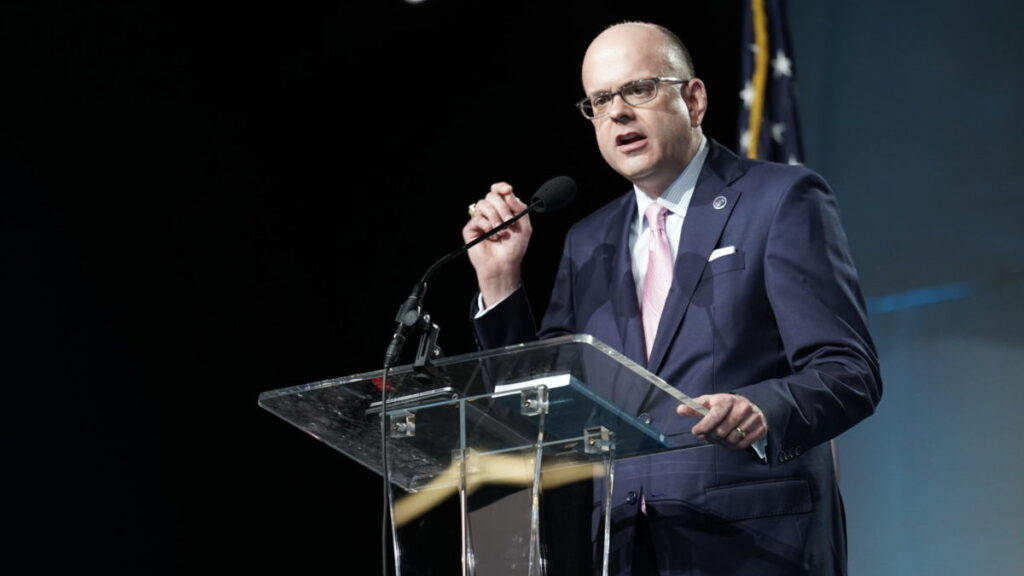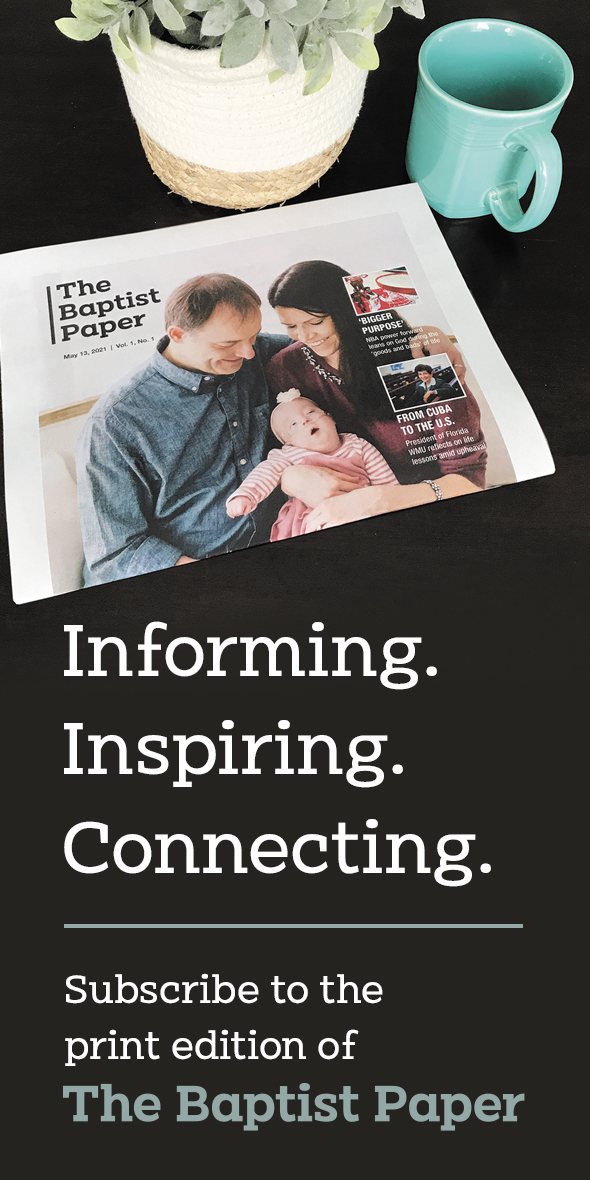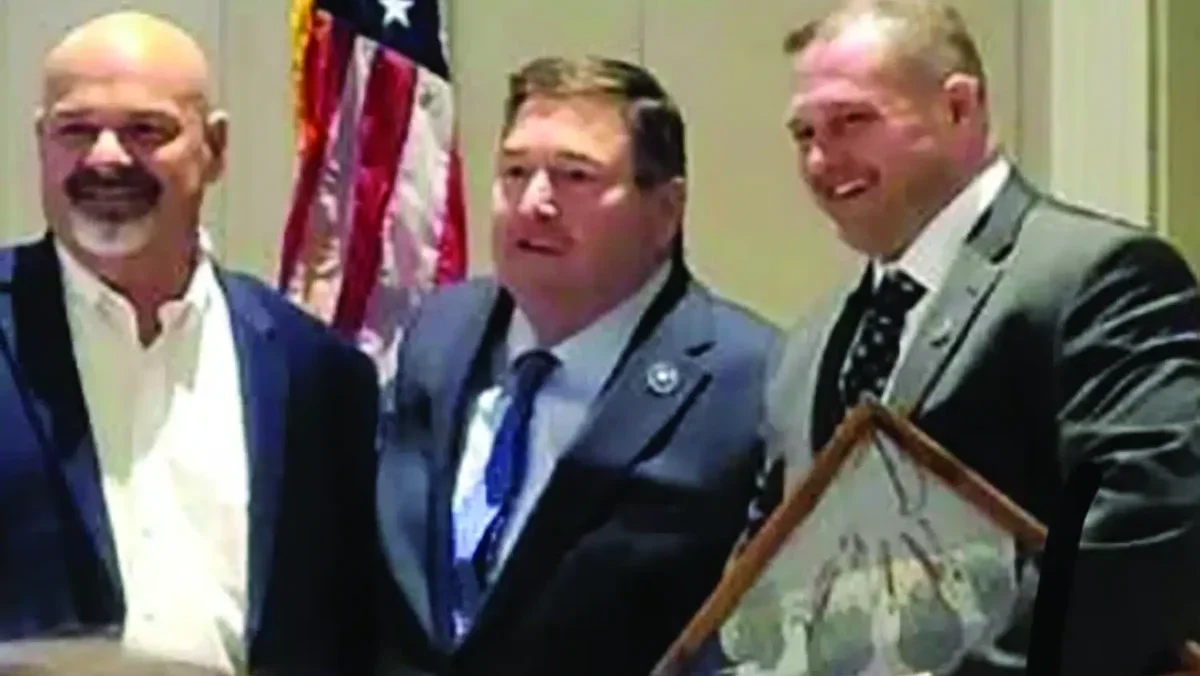Adam Greenway, who stepped down as president of Southwestern Baptist Theological Seminary in September 2022, filed a personal injury lawsuit against the seminary and the past chair of its trustee board.
The lawsuit, filed March 20 in the U.S. District Court for the Northern District of Texas, asserts the seminary administration and Danny Roberts, then chair of the trustee board, “began a defamatory campaign against Dr. Greenway that included both specific false statements, along with publication of a narrative that created a substantially false and defamatory impression.”
“The defamation of Dr. Greenway has been widely publicized, resulting in severe damage to his reputation and rendering him unemployable in the professional capacity for which he is qualified,” the lawsuit states.
Many of the statements alleging financial mismanagement by Greenway concerned expenditures made to repair and restore the president’s home on the seminary campus. The suit maintains Greenway’s predecessor — Paige Patterson — left the president’s home “in a state of disrepair and unfit for habitation or use.”
Last fall, Greenway’s attorney sent a demand letter threatening a $5 million lawsuit, which was not filed at that time. The current suit says the plaintiff is seeking damages “in excess of $75,000,” but that only establishes the baseline.
The suit calls for a judgment awarding compensation for actual damages, exemplary damages, past and future economic loss, attorneys fees, statutory and civil penalties, and “all other proper relief.”
Seminary responds to lawsuit
In response, Southwestern Seminary issued the following statement: “It is regrettable that Adam Greenway is suing the seminary he has previously claimed to love in response to Southwestern’s refusal to agree to his demand of $5 million last fall.
“It is also disappointing that his lawyer turned down multiple invitations to inspect the evidence supporting the public statements previously made by the seminary.
“We categorically deny the allegations contained in the lawsuit, will defend vigorously the institution, and are confident the outcome will demonstrate that these claims are entirely baseless.”
The lawsuit asserts the defendants were negligent and “acted with actual malice and/or a reckless regard for the truth.” It seeks compensation for defamation of character, asserting the defendants “created a false and defamatory impression” that he secretly “spent seminary funds for his own benefit in a manner akin to embezzlement.”
Expenditures related to president’s home
The lawsuit offers specific allegations regarding the condition of the president’s home when the Pattersons left it after removing “the majority of furnishings and décor.”
“Visible mold could be seen growing on interior walls of the facility,” the lawsuit states.
Later inspections “revealed that mold and mildew existed through the HVAC system, including the ductwork,” and a risk manager for the seminary advised that the HVAC system be replaced “for the safety of occupants and guests,” the suit continues.
The lawsuit notes the president’s home is not simply a single-family residence, but also is “designed, equipped and maintained as a multi-purpose institutional facility, equipped to host institutional functions and gatherings, including meetings, fundraising events and receptions.”
What about the $11,000 expresso machine?
The lawsuit includes an explanation for an expenditure publicly singled out in a report released by the seminary as an example of extravagance — an $11,000 espresso machine.
“The kitchen is equipped with commercial grade appliances, suitable for hosting gatherings beyond those typical in a single-family dwelling,” the suit states. “As part of the renovations relating to hospitality, the president’s home was equipped with a commercial grade coffee bar at a cost of $11,123.49. The cost included an espresso machine, water filtration system, accessories and installation.”
The kitchen was used by seminary staff for receptions and other functions attended by more than 1,000 people, the suit notes.
All expenditures related to the repairs and restoration of the president’s home were made in accordance with seminary financial guidelines and practices, the suit asserts.
Furthermore, the suit states Greenway cut costs by eliminating 14 full-time staff positions related to the president’s home, which Patterson called “Pecan Manor.” The suit also notes four offices with up to 27 active phone lines existed in the president’s home during Patterson’s tenure.
Internal dissent and political controversy
Nevertheless, the suit asserts the trustee chair and seminary administration used those expenditures in a “behind-the-scenes initiative” to remove Greenway from office.
The suit asserts Colby Adams, then vice president for business administration at the seminary, drew on a $1.6 million line of credit without the president’s knowledge.
Greenway subsequently removed Adams from that post — a decision that triggered dissent within elements of the staff and involvement by board leadership. Instead of being dismissed, Adams was reassigned, against Greenway’s wishes.
The lawsuit also alleges Greenway was forced out because he “voiced opinions relating to political issues that were met with disapproval by influential alumni, members of the Executive Committee of the board of trustees, administration and faculty.”
In particular, the suit notes Greenway’s social media post criticizing a conference. He tweeted: “If America really was/is a Christian nation —as my Twitter feed indicates some are claiming today — then where are the cries to repent and believe instead of just calls to register and go vote? Don’t reduce the Bible to a political prop and Jesus to a candidate consultant, please.”
According to the suit, Jack Graham, pastor of Prestonwood Baptist Church in Plano, demanded Greenway remove the tweet.
The lawsuit accuses the seminary administration and trustees of breaching the terms of a settlement agreement regarding Greenway’s resignation, including a “promise of mutual non-disparagement.”
The suit asserts trustees received “only selected and incomplete financial records,” which left a false impression regarding Greenway’s handling of finances.
Response from Greenway’s attorney
When the Baptist Standard contacted Greenway to ask specific questions regarding the lawsuit and its timing, he referred all inquiries to his attorney, Andrew Jones, and he provided the lawyer’s email address.
Jones sent the following statement: “Dr. Adam W. Greenway has dedicated his life to studying and spreading the Gospel of Jesus Christ. What he has been met with at the hands of the Southwestern Baptist Theological Seminary since his departure has not shaken his faith or his resolve.
“To be victimized by one’s own alma mater is a particular form of cruelty, but Dr. Greenway is heartened by the wisdom found in 1 John 3:18 — ‘Let us not love in word or talk but in deed and in truth.’ We look forward to the litigation process and for the public to finally learn the truth, as described in the lawsuit we filed on Wednesday.”
EDITOR’S NOTE — This story was written by Ken Camp and originally published by Baptist Standard.










